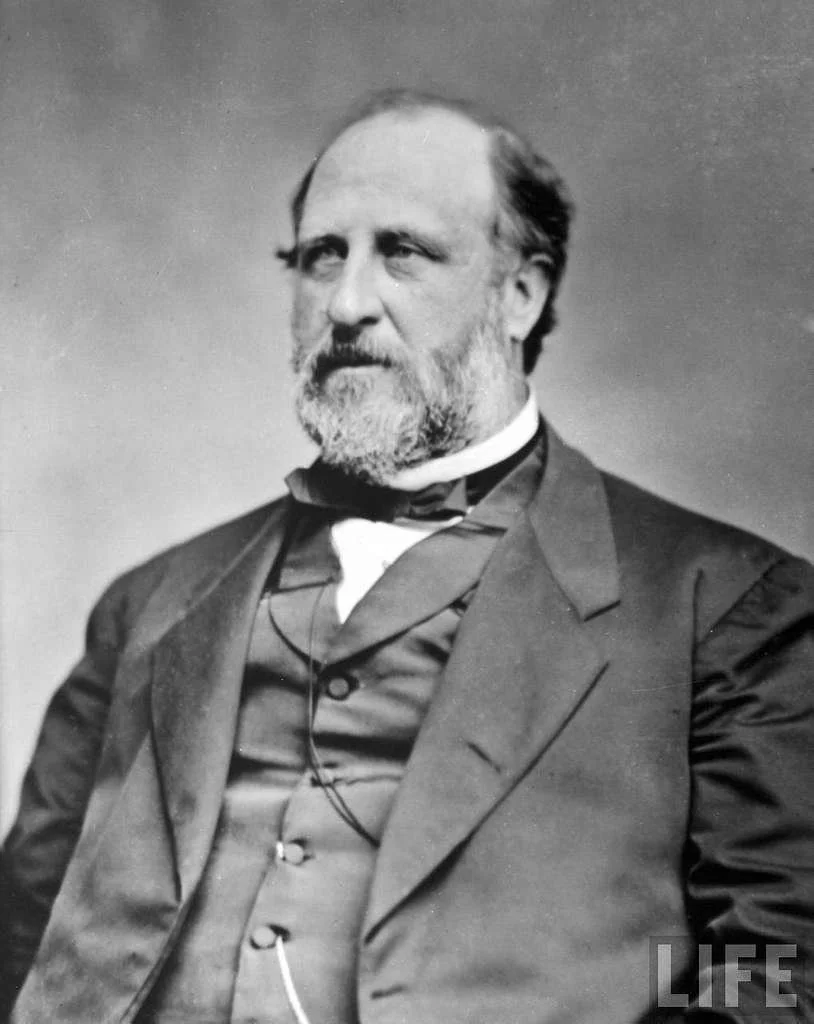Why are so many local progressive political leaders unethical?
Under the leadership of William M. Tweed (known affectionately as “Boss Tweed”), Tammany Hall was a formidable political machine that dominated and controlled the Democratic Party in much of New York City throughout the late 19th century. Under his direction, Tweed and his cronies were able to embezzle millions of dollars from the city treasury. Image by Wikimedia Commons
For many voters, partisan loyalties override moral judgment, leading to the degraded political culture and corrupt politics we see in Silicon Valley. So says Associate Prof James Lemoine of the University at Buffalo’s Baldy Center for Law and Social Policy.
Why do we keep electing and re-electing devious, narcissistic, tyrannical and immoral men and women to positions of power? Scholars much wiser than I have spent careers and lifetimes digging into this question, and it is impossible to offer a complete answer in a short blog such as this. One of the most common explanations, though, is as compelling as it is depressing: Our partisan loyalties override our moral judgments.
Start with the question of what we want from our elected officials: We’d hope that most of us would respond that they expect politicians to work for the good of their constituents and their region. Obviously, people on different sides of the political aisle vary on what they see as that “good” that elected officials should work towards. Research indicates that Democrats believe the common good is best represented by caring for and taking care of people, with emphasis on those who have historically been ignored or oppressed, whereas Republicans tend to equally value caring for others alongside matters of liberty, loyalty and personal responsibility.
How much immoral behavior are constituents willing to tolerate, then, to accomplish these aims? Widely regarded as one of our most effective presidents, Abraham Lincoln took several actions of questionable legality at the beginning of his term, such as suspending the writ of habeas corpus, in his attempts to hold the Union together. Franklin Roosevelt is widely recognized by modern Democrats as one of their greatest and most effective presidents for his roles in the New Deal and World War II, despite his internment of thousands of Asian Americans and his moral failures to act against the Nazi Holocaust.
Members of one party are likely to attack the moral flaws of the other, but they somehow always manage to find excuses for members of their own party: “He’s not immoral, he’s just working the system.” “She didn’t mean that the way it sounded, she was just taken out of context.” Or, more recently, “I don’t even need to see the evidence; it’s just a partisan hit-job, not even worth replying to.” Partisans give their own candidates a pass, which gets Bad People through primaries and into the general elections, where the public is confronted with the choice of two highly flawed candidates.
It could be argued that the biggest contributor to this problem is the endemic mental laziness in humankind (no offense intended to you, dear reader—it’s a natural flaw we all share). According to psychologists and neuroscientists, we are all “cognitive misers.” Our brains are confronted with so many stimuli that we could think about during the day, so to avoid becoming overwhelmed we subconsciously choose to think deeply about only a limited number of things. For instance, right now I could deeply cogitate regarding what to say the next time someone walks into my office, or whether I’m sitting in the most efficient and ergonomic posture, or how the mechanisms within my computer keyboard actually work. Instead, to spare cognitive energy, I just go with intuitive answers to these questions or don’t worry about them, while I continue to type this paragraph. We do this all day long, every day. The good news is that it keeps us sane and makes progress possible. The bad news is that, often, it causes us to underthink the things we really should be more deeply considering.
One of those things we should really think more about is a psychological process called “splitting.” Splitting means that because our minds dislike having to process contradictions, we tend to perceive things in all-or-nothing terms—most frequently, seeing things as 100% good vs. 100% evil. It’s simpler for us to think of things this way: My child can do no wrong and my grandmother is a saint, but the big tobacco executive and the guy who cut me off in traffic have no redeeming qualities.
Therefore, if evidence emerges that a politician from our own party has poor moral character (or that a position of our party is actually the wrong one), this would (and should) cause uncomfortable cognitive dissonance and spur us to reconsider our views and allegiances. But this would involve difficult cognition and consideration, and raise the possibility that we are wrong, none of which our subconscious is comfortable with. It’s much easier and simpler to consciously or subconsciously convince ourselves that we were right all along, our favored candidate or position is 100% correct, and therefore any evidence against them must be flawed.
So, short of altering our electoral system (which isn’t necessarily a bad idea), the only way to improve the moral character of our kakistocratic elected officials is to subvert our own human nature by looking at moral issues as they are, rather than as we want them to be. I’m willing to try it if you are.
Read the whole thing here.
Follow Opportunity Now on Twitter @svopportunity
We prize letters from our thoughtful readers. Typed on a Smith Corona. Written in longhand on fine stationery. Scribbled on a napkin. Hey, even composed on email. Feel free to send your comments to us at opportunitynowsv@gmail.com or (snail mail) 1590 Calaveras Ave., SJ, CA 95126. Remember to be thoughtful and polite. We will post letters on an irregular basis on the main Opp Now site.

